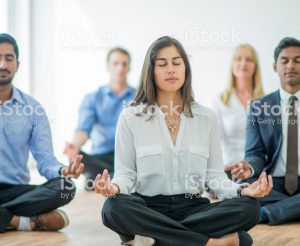Preventing Falls
This article as been written by the Orthomolecular Medicine News Service and is posted with their permission. The peer-reviewed Orthomolecular Medicine News Service is a non-profit and non-commercial informational resource. Please subscribe to OMNS here http://orthomolecular.org/
Preventing Falls, a serious matter: One in four falls in the elderly proves fatal.
by Ralph K. Campbell, M.D.
If one looks around, it is easy to observe that aging is an individual thing, many times without a direct relationship to chronological age. Mental stress is a big factor in developing what we call aging. When we get worse in associating names with faces, this might foretell a need to think about the gradual decline in physical and mental functions. We say, “He is losing his grip”; yes, in muscles but also in ability and often in attitude. It is easy to observe problems that derive from diminishing sex hormone levels: hot flashes in women and some rearrangement of body fat around the waist, and an overly-emphasized diminished libido in men. The less obvious, but more significant, effect in men is diminished muscle strength and muscle wasting when testosterone levels fall. A similar effect of muscle weakening with age exists in women.[1] But we know that using muscles is an excellent way to slow the wasting process.
Nutrients help
It has been shown that, with age, one has a diminished ability to make creatinine, a precursor of ATP, responsible for muscle strength. Fortunately there is creatinine in supplement form; so it can be used in conjunction with the “use it or lose it” principle. [2-5] Other supplements of essential nutrients may also help, including the B vitamins, vitamin D, and omega-3 fatty acids. Excellent nutrition including adequate amounts of vitamins and essential nutrients is known to be important for maintaining weight, muscle mass, and cardiovascular health. [6-8] Vitamins C and E are necessary, especially in older people, to maintain skin, joints, muscles, blood vessels, and many organs including nerves and the brain. [9] And to get the most improvement with exercise, it’s important to eat enough protein.
Muscle sense
Proprioception is a kind of muscle sense through nerve endings in muscles that are stimulated by contraction. With age, we gradually lose the sense of proprioception. We have difficulty going down stairs while carrying a load that obscures our vision as we wonder “where did that next step go,” or “just where is my foot?” In our youth, proprioception automatically did the “looking” for us. Just walking on an uneven surface now can cause confusion. A substitute for healthy proprioception is a must for those experiencing aging, and that is having – and using – a hand rail next to steps. With one hand on a railing, one can feel better oriented in space. The ease of negotiating steps may vary. There will be times in which we are only comfortable when taking baby steps. So be it. After all, we are in our second childhood.
The eyes have it
Cataract formation (opacity of the lens of the eye) is common in older folks. We have enjoyed eye-dominance — the brain’s reliance on seeing the world around us — all our lives. When we change our focus from one object to the other, we almost instantaneously zero in with our dominant eye as the other eye follows. The greater the difference in visual acuity between the eyes, the longer the lag time that provides a moment of “where am I?” Proper depth perception depends on eyes, with similar acuity, working together. When vision is quite poor in one eye, we lose stereoscopic vision or depth perception. Again, an irregular surface can present a problem, as one might not detect the irregularity in time to avoid it. Adequate doses of essential nutrients from an excellent diet and supplements, including the B vitamins, and vitamins C, D, and E, omega-3 fatty acids, zinc, and magnesium, are essential to maintain health of the eyes as we age. [10]
Ears, brain and balance
An easy test to demonstrate that balance “ain’t what it used to be” is to try standing on just one leg. Since you might not do too well, try this in a place where you have something to grab onto if you start to fall. This deterioration of balance is made worse by a sudden change in position, probably due to deterioration of function of the semi-circular canals of the inner ear. These act like gyroscopes to tell you just where you are in space—something automatic that we often don’t think about. There may be a connection between hearing loss and the workings of the inner ear. So if you have hearing loss, it might be better to be checked out by an ENT doctor, who can also evaluate inner ear function, before being fitted with a hearing aid.
Blood circulation
Arising from a sleeping position too quickly may cause hypotension or even fainting. There are sensors in the carotid arteries (in the neck) that are designed to immediately kick in to avoid even momentary inadequate blood supply to the brain. However, these sensors don’t function as well in the elderly, and often the carotid arteries are not as open as they used to be. So make that position change more slowly. Take stock of what you safely can do and what you can’t. If you feel hesitant to get on a ladder, don’t.
Maybe you think like I do: I don’t as much fear falling as I do landing. I might slip on the ice. But I would much rather fall forward and risk breaking a wrist, than backwards and hit my head which can produce a concussion or, more subtly, cause bleeding entrapped by the covering of the brain (cephalohematoma) which may amount to real neurological trouble soon after. This problem develops much more readily in those on a daily aspirin regimen. The rigid, boney skull, of course, stops suddenly as it hits the hard surface, but the brain inside moves abruptly, which might cause blood vessels to tear. The bleeding may rapidly come to a stop unless enhanced by aspirin, which inhibits the first step in coagulation of blood—clumping of platelets.
Dietary recommendations
- Eat a lower-carb diet, which will prevent bone mineral loss from too high sugar intake
- Try intermittent fasting to increase growth hormone levels
- Do squats and other weight-bearing exercises.
Summary
Your balance will be better sometimes than at others. Don’t worry about being slow, since the alternative spells trouble. Rather, just give full attention to the task at hand and be thankful for what you can do. You can focus on eating an excellent diet, which means eating colorful vegetables, nuts, unprocessed whole foods, moderate amounts of meat and fish, and adequate doses of supplements of essential nutrients. And you can get adequate, appropriate exercise.
“We get too soon old and too late smart,” says the old proverb. Movement with healthy awareness and healthy nutrition can help us get smarter a lot sooner and older maybe a tad later. Let us help you! Call 587-521-3595 to schedule an appointment today!
References:
References are available online at http://orthomolecular.org/resources/omns/v14n24.shtml



